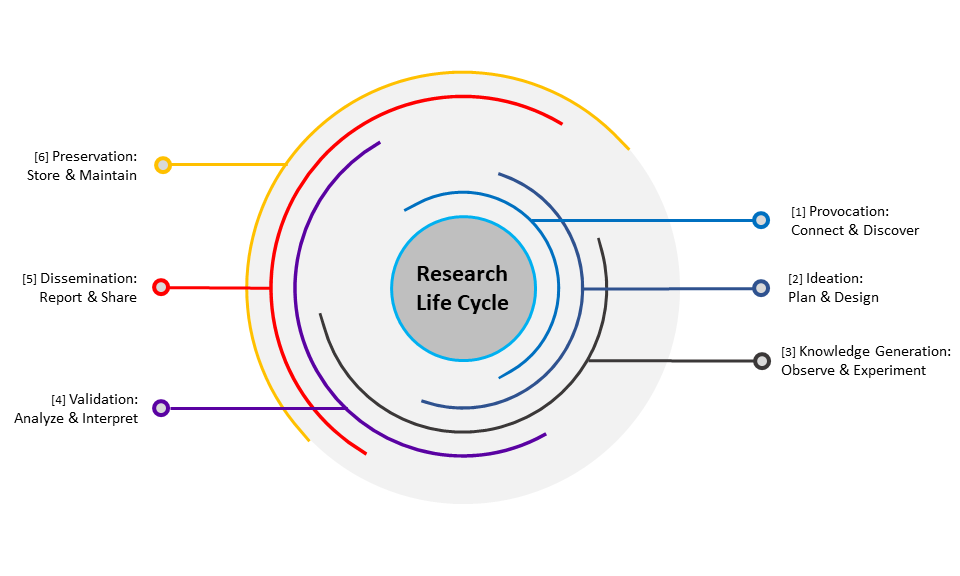How to use this site
This site is a result of work done by the IUPUI Public Access to Research Data Working Group (PARD WG), convened by the IUPUI Office of the Vice Chancellor for Research in response to the AAU-APLU efforts to accelerate public access to research. To learn more about the group and our scope of work, see the About Us page.
The purpose of this site is to support researchers - faculty, staff, and students at all stages of their career - in accessing the wide range of research support available on the IUPUI campus. We've organized the campus and system-wide resources along the six phases of the research lifecycle described in the NASEM Report "Open Science by Design: Realizing a Vision for 21st Century Research."


